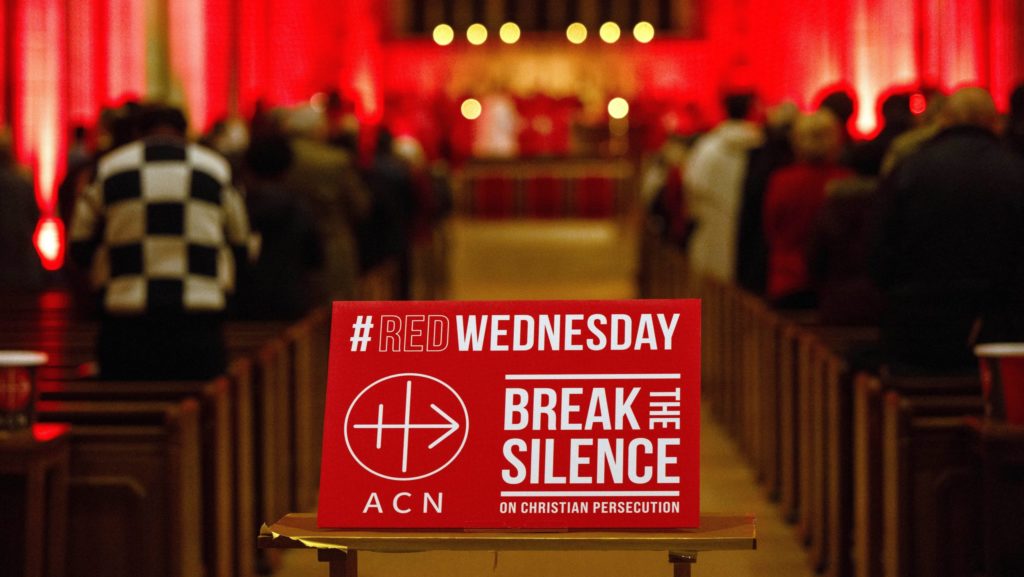A human rights expert has warned that anti-Christian hate crime is being fueled by "religious illiteracy" among Western officials, as an intergovernmental report confirmed worsening discrimination across Europe.
"This lack of basic knowledge poses a major problem in how officials react to anti-Christian incidents," explained Anja Hoffman, executive director of OIDAC, the Vienna-based Observatory on Intolerance and Discrimination against Christians.
"While no one in authority supports the vandalizing of churches, anti-Christian rhetoric in the media and public sphere is playing into the general atmosphere. Many young people are now afraid to share their faith publicly, fearing this could damage their study and work opportunities."
The Austrian expert spoke with OSV News as the 57-country Organization on Security and Co-operation in Europe, or OSCE, released its report for the Aug. 22 International Day Commemorating Victims of Violence Based on Religion or Belief, established in 2019 by the United Nations.
She said data collection methods varied from country to country, but added that recent "shocking acts" against places of worship had confirmed a "worsening anti-Christian climate," forcing churches across the continent to stay closed outside worship hours.
Church and human rights organizations have long warned of rising anti-Christian prejudice across Europe, fueled by anti-religious groups and social media.
In its 129-page report, the OSCE said incidents ranged from "graffiti and vandalism to threats, physical assaults and murder," and risked undermining "broader peace, security and stability," but were usually "downplayed, under-reported or politically overlooked" and treated less seriously than other hate crimes.
Among documented incidents, the report said a Catholic priest in Spain had
received death threats citing historical persecutions, while another had been among four stabbed with a machete during an attack at Algeciras which left an altar server dead in January 2023.
A 76-year-old Catholic nun was "slapped across the head" by a youngster in Austria, the report added, while a young priest had been punched in the head and face in Poland by a man shouting anti-Christian insults.
In her OSV News interview, Hoffman said arson attacks on churches were now frequent, such as at St. Omer in northern France, where the historic Immaculate Conception Church had been torched in September 2024, bringing down its bell tower.
She added that local authorities were often reluctant to protect churches, while growing restrictions on freedom of speech prevented Christians from defending their beliefs in public.
"We hear continually from university students about the shocking hostility directed at them if they express Christian or pro-life convictions," said the director of OIDAC, which co-operates with the European Parliament and UN Human Rights Council in monitoring anti-religious crimes and restrictions.
"Those in charge should be doing much more to ensure open debate, even on controversial topics, so Christians and others can feel freer in expressing their views."
In its report, the OSCE said its staffers had called repeatedly for action to address anti-Christian acts, which were "often symptoms of broader societal divisions, systemic prejudice and rising intolerance."
It added that the current atmosphere had a "profound impact" on community
life by impeding Christian services and social initiatives, as well as the wearing of Christian symbols "due to fear of potential attacks."
Among recommendations, the report called for "comprehensive domestic education policies" and "awareness-raising campaigns" to address root causes of anti-Christian prejudice.
It also urged better data collection, training, legislation and policy development, with improved victim support systems and enhanced security and safety measures.
The report included appendices, explaining Christian history and feasts such as Easter, Ascension and Christmas for European law-enforcers, as well as the meaning of terms such as "church," "clergy," "pilgrimage" and "feast days."
Hoffman said she welcomed the OSCE report's call for research into the motives for anti-Christian resentment, as well as for better religious awareness among police and officials.
She added that recent criticisms by U.S. Administration members of European restrictions on religious freedom, including the criminalisation of prayers near abortion clinics, was encouraging the search for a "more sensible balance" between "unbridled free expression" and "respect for religious feelings."
"Most people here, especially the young, are open to Christian ideas -- we shouldn't be discouraged by today's small but vocal anti-religious groups," the OIDAC director told OSV News.
"But with freedom now often under attack, it's crucial the Catholic Church and others stand up for their identity. They have a great message of love, truth, hope and life, much of which contradicts the prevailing culture and is highly attractive to many people."
In its own latest report, OIDAC said it had monitored a record 2444 anti-Christian hate crimes in 35 European countries during 2023, with thousands of violent incidents also recorded against Jews and Muslims.
The report said France was worst affected, with 950 reported crimes, followed by England and Wales with 702, and Germany with 277.
In an Aug. 20 statement, pontifical charity Aid to the Church in Need said it had also registered a rise in religious freedom violations worldwide, with "hundreds of millions" now affected globally.

